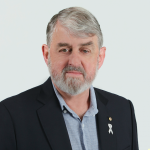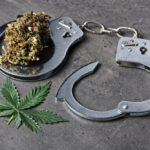Speakman’s Modest Drug Reforms Blocked, as Perrottet Stalls on the Inevitable

More than two years after the NSW Coalition government-commissioned inquiry into the drug ice delivered its recommendations, the dinosaurs in the Liberal Nationals cabinet continue to resist taking any adequate action in regard to its findings or even respond to its report.
NSW attorney general Mark Speakman delivered a drug law reform proposal to cabinet early last week, which was a watered down version of his initial late 2020 policy response, and just like the first, the new scheme was shot down by other ministers, including premier Dominic Perrottet.
Speakman last week proposed a drug diversion program that would provide NSW police officers with the discretion to hand out two $400 fines to those caught with small amounts of illicit substances on them, prior to their having to appear in court following a third personal possession incident.
According to veteran NSW drug law reformer Dr Alex Wodak, this stalling on the issue is by design, as conservative ministers find themselves in the uncertain position of governing in a political climate where the shift towards drug law reform is mounting but voter support remains a gamble.
The doctor says that the ensuing political squabbling and inadequate reforms that result as drug prohibition collapses, reminds him of what Italian philosopher Antonio Gramsci said of periods when “the old world is dying, and the new world struggles to be born”, which is a “time of monsters.”
Regrettable offspring
“The world of drug prohibition is slowly dying but its replacement is slowed by difficult politics,” said Harm Reduction Australia ambassador Dr Wodak. “For many decades, drug prohibition was a magic pudding enabling otherwise unelectable political candidates to vault into landslide victories.”
“Today, support for drug law reform isn’t a certain political liability, while support for drug prohibition isn’t a guaranteed political asset,” he continued. “So, we end up now with policy monsters, which attempt to appeal to both supporters and opponents of drug law reform alike.”
The ACT parliament is set to pass laws to decriminalise drugs, which means the removal of criminal sanctions against those caught using or in the personal possession of an illicit substance. Yet, the Perrottet government is stuck knocking back reforms that still ultimately lead to charges being laid.
Similar to the decades-old NSW cannabis cautioning scheme, Speakman’s latest city-only proposal would’ve seen those in possession potentially fined twice and charged on a third offence, while his earlier plan would’ve led to a warning, followed by two fines, and then an appearance in court.
“Drug law reform has always primarily been more about political strategy than drug policy,” Wodak told Sydney Criminal Lawyers.
“Politics is an extraordinarily precarious profession. Failure often occurs suddenly with millions watching. And an uncertain financial future faces some politicians who fail early on to get re-elected.”
Decriminalisation prevents harms
“A key element of NSW’s drug policy is the criminalisation of the use or possession of drugs for personal consumption,” states the ice inquiry report. It then explains that its widely recognised that the criminalisation of personal possession doesn’t achieve any reduction in supply or demand.
Instead, the report continues, it’s well understood that the offences of personal possession and use produce extensive harms, in terms of contact with the criminal justice system, that impact employment, earnings, housing, relationships, as well as being “a powerful source of stigma”.
Professor Daniel Howard SC, who undertook the inquiry, recommends the implementation of decriminalisation, which would see the removal or nonenforcement of criminal sanctions against drug use and personal possession, so that drug use is then treated as a health issue and not a crime.
Currently, section 10 of the Drug Misuse and Trafficking Act 1985 (NSW) makes it an offence to possess personal quantities of illicit drugs, while section 12 outlaws taking them. Both crimes carry maximum penalties of up to 2 years imprisonment and/or a fine of $2,200.
Whilst being a step in the right direction, the state AG’s proposal continues to treat use and possession as a crime, with its related harms only being delayed, when officers choose to issue a fine and not a charge, which will disproportionately affect communities targeted by police.
Portugal decriminalised the use and possession of all illicit drugs in 2001, along with strongly investing in rehabilitation, as the nation was going through a drug crisis.
Two decades later and drug-related harms and deaths have dropped dramatically under the policy, which is now considered the gold standard.
Despite the political hesitation, community calls for drug decriminalisation in NSW are strong. The Uniting Church’s Fair Treatment decriminalisation campaign involves the support of a long list of civil society organisations, including the Law Society of NSW and the NSW Bar Association.
A further delaying tactic
The Special Commission of Inquiry into the Drug ‘Ice’ was established by former NSW premier Gladys Berejiklian in November 2018, with the aim of considering the adequacy of existing measures to deal with the substance also known as crystal methamphetamine, and to identify better options.
Professor Howard delivered 109 comprehensive recommendations in March 2020. The Liberal Nationals government immediately rejected five of them, including decriminalisation, before rolling over and going back to sleep on the matter.
Wodak outlines that the nation has conducted “numerous Royal Commissions and major inquiries into drug policy”, yet most have resulted in few significant reforms, even though the majority have concluded that drug prohibition is a very “expensive way of achieving poor outcomes”.
“It has become clear that drug policy inquiries are mechanisms for political leaders to manage a difficult political situation and play for more time rather than to improve policy outcomes,” the leading harm reduction expert underscored.
Time to legalise it
The legalise recreational cannabis vote in last month’s federal election was significant, especially as most voters were focused on the issues of climate and corruption in politics. The Legalise Cannabis Australia party took out 2 to 7 percent of the votes for the Senate in all states and territories.
“Regulation, instead of criminalisation of cannabis, is now inevitable in Australia,” said Wodak, “as more countries Australia usually compares itself with get serious about cannabis reform.”
Nineteen US states have legalised recreational cannabis since late 2012. The entire nation of Canada legalised the plant’s use in October 2018. Whilst unbeknownst to some, the Australian Capital Territory legalised the personal possession and adult use of cannabis on 31 January 2020.
Wodak explained that while cannabis importation is a federal concern, legalisation of it is a state issue. And he further pointed out that the High Court found in 1997 that the constitution precludes states and territories from taxing alcohol and tobacco and this would also apply to cannabis sales.
Section 90 of the Australian Constitution sets out that states are prohibited from charging customs duties and excise taxes upon the sale of goods. And this prohibition on the ability to tax is seen as providing a disincentive for these jurisdictions to undertake cannabis law reform.
“The constitution also appears to prevent the states and territories from regulating cannabis,” Dr Wodak said in conclusion. “Options to find legal and constitutional ways of accommodating states and territories regulating cannabis need to be identified and considered.”







